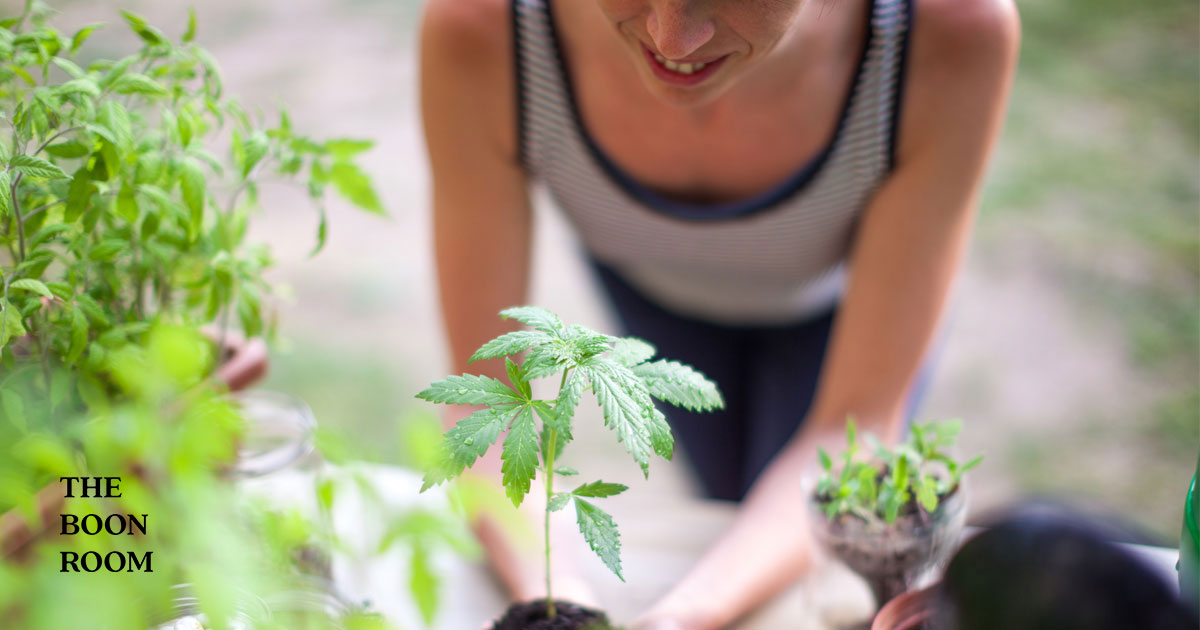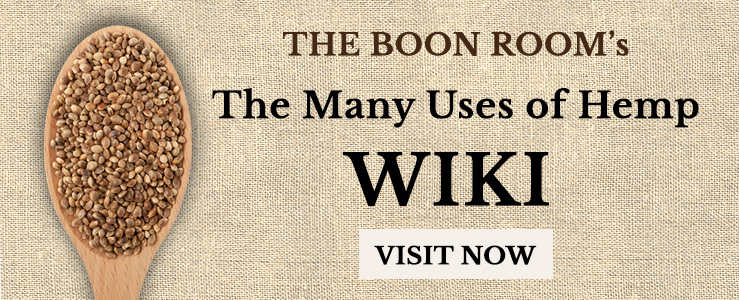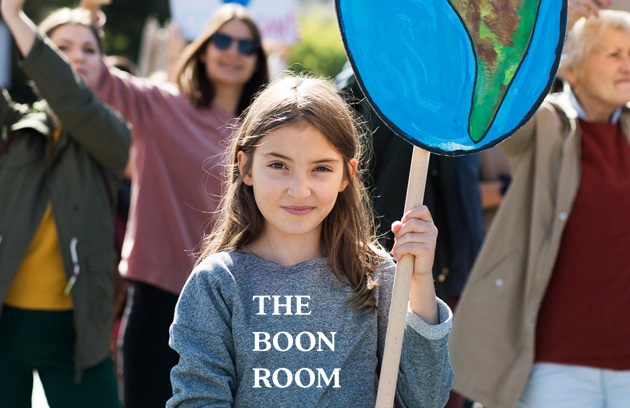Many people would consider it ideal if there was a naturally occurring, multi-purpose material that can be used in everything from healthcare to clothing, infrastructure, and even cars. Even more would jump on board if we told you that this plant could also help build stronger economies, for businesses and consumers alike — and boost sustainability and be good for the planet. Fortunately for us, Mother Nature has already created such a material, and it is hemp.
Hemp has a significant amount of potential when it comes to creating a sustainable future, as it is highly efficient and less damaging to the environment than many other crops. 1 Unfortunately, many people confuse hemp and marijuana, which can cause prejudice and concern among certain communities. Let’s discuss popular uses for hemp and its distinction from marijuana. Then, we’ll explore your options for growing hemp for personal use, and how you can use this amazing plant at home.
Is Growing Hemp at Home Legal?
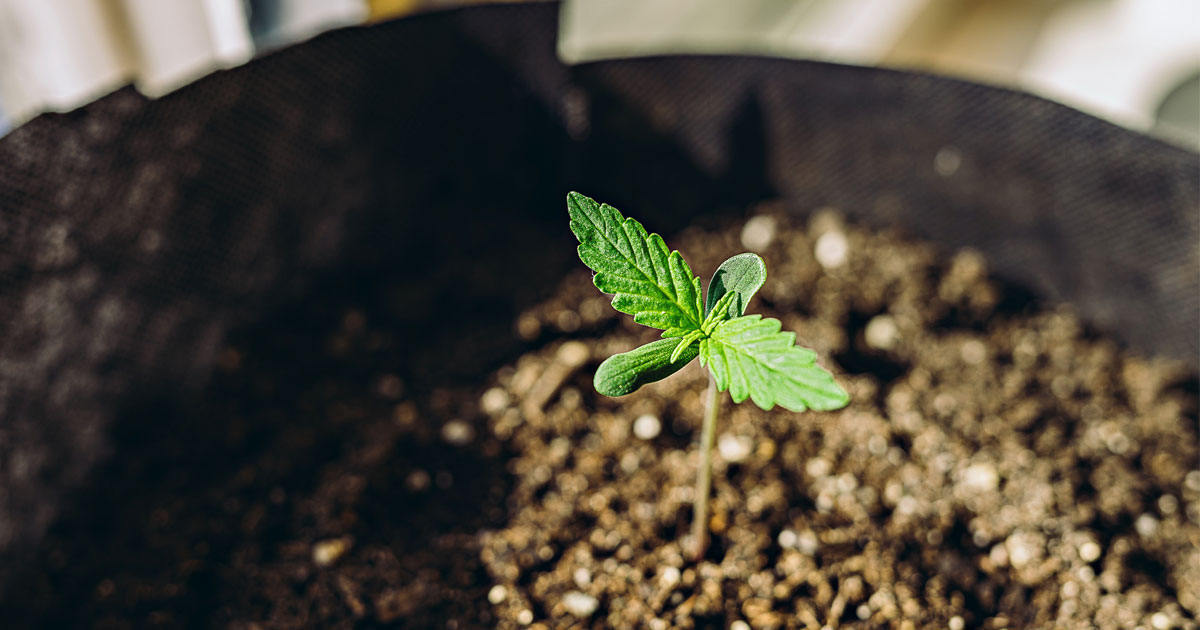
The short answer is that growing hemp at home for personal use is legal. However, the official answer is a bit more complex. While industrial hemp is now legal on a federal level due to the Farm Bill of 2018, cultivation measures are controlled by each state for its agricultural community. 3
The bill, which allowed for the cultivation of industrial hemp in all 50 states, greatly expanded on formerly limited growing measures for research purposes. Even researchers were required to meet lengthy standards to conduct studies. On a state level, state legislators are now free to create and enforce legislation on industrial hemp farming. By law, hemp can be grown at home legally within the United States.
So, in what states is it legal to grow hemp? Prior to the signing of the 2018 Farm Bill, only certain states had passed laws pertaining to personal hemp cultivation, and the rules for personal hemp cultivation in those states varied considerably.
Personal medical marijuana cultivation was only allowed in eight states:
- Arizona
- Montana
- Missouri
- Oklahoma
- Hawaii
- Rhode Island
- New Mexico
- Washington State
Only those with official medical marijuana licenses could legally cultivate hemp (which falls under the same classification) at home in those states.
At the time, Colorado, Massachusetts, Alaska, and Maine were all considered recreational states, so in these states, hemp farmers could grow their own cannabis. Growers had to be sure to follow their state’s cannabis cultivation guidelines, and if they obeyed the rules, it was perfectly legal to grow hemp at home. States like Oregon, Michigan, Nevada, and Vermont all allowed medical patients access to growing hemp in higher plant counts compared to others who were cultivating industrial hemp for recreational use.
Now, all states have different regulations regarding hemp, but most allow you to grow it at home with certain limitations.3 So, can you get in trouble for growing hemp? To get the full details for your area, check your local and state laws.
What Are the Rules for Growing Hemp?
We advise you to do a thorough check of the laws and regulations in your state regarding growing hemp before starting any form of cultivation. You’ll first want to make sure that you understand exactly what your state considers the cultivation of industrial hemp for personal use. Then, you’ll need to get all the proper licensing necessary to grow industrial hemp safely and legally.
However, if you are in a state where the sale of recreational cannabis is already legal, you don’t necessarily need to get a license to grow hemp. Many states who have already legalized cannabis allow individuals to cultivate 3-6 cannabis plants at a time.
Growing Hemp at Home
If all else checks out, you can grow your own industrial hemp at home. The process is as simple as growing any other herb or vegetable. You’ll just need soil, a flower pot or a garden bed, some seeds, some water, and plenty of radiant sunshine. Still, to successfully grow industrial hemp at home, you have to understand the life cycle of the hemp plant.
Industrial hemp plants are considered annual plants, and they tend to grow well in varying climates throughout the United States. Once you plant a hemp seed, if conditions are optimal, they can begin to sprout anywhere between five and 10 days. After a few weeks at the seedling stage, the plant reaches the vegetative stage. This is where it starts to fill out, and you can also take cuttings to start new plants and prune your hemp plants during this time.
Next comes the flowering stage. Here, you will be able to verify the sex of your plants. There are both male and female hemp plants, with the male plants producing pollen. The female plants sport a stigma, a sticky bulb in the middle of the plant that catches the pollen. In an outdoor environment, hemp plants are typically pollinated by the wind. In an indoor environment, though, you likely want to avoid the female plants becoming pollinated as they start to put their energy toward generating seeds and may not produce buds.
Once you’ve got a good feel for maintaining healthy soil and properly feeding your crop, you will see results in the form of lush hemp plants that will provide you with benefits galore. If you’ve ever seen a hemp plant in person, then you know that they can grow to be pretty large, so make sure you’re giving your crop enough space to grow out and up.
Indoor or Outdoor
Can you grow hemp in your backyard? You can, but you may not want to. Hemp thrives best when grown indoors. Unlike some plants, hemp responds best to a controlled environment rather than in the wild. If you have the option to grow your hemp indoors, you should opt to do so.
Soil and Water
Hemp thrives best in well-draining soil with a pH between 6 and 7.5. 4 This allows the plant to avoid overwatering and root rot. However, it is still important to keep hemp well-watered. This is especially true in the first six weeks of the germination process. The soil should not dry out as the hemp is beginning to grow.
Choosing Seeds
Hemp plants can be categorized as either male and female. It is best to grow female seeds, though you can technically grow either one. Your choice in seed will depend upon what you want to do with your hemp.
Different end goals will inform what kind of hemp seed you purchase. You may also want to consider the growing season if you choose to grow your hemp outdoors. Colder areas may have a difficult time growing hemp outdoors in the winter months.
Finally, there are strains of hemp that are resistant to mold. If you live in a damp or rainy environment, you may want to choose a strain that will not mold with exposure to excessive moisture.
Germination
Once you’ve chosen your seeds, you will need to germinate them. Presoak them for eight to 10 hours, then plant them one inch deep in a seed starting soil mix. Put a heating mat under your seeds to keep the soil warm, and place a humidity dome over the top to increase humidity. Germinating hemp will grow best with 60 to 70% humidity.
Cultivating Healthy Plants
While your hemp grows, it is important to tend to it so that it can mature into healthy, strong plants. Keep the hemp between 60-80 degrees Fahrenheit at all times throughout the process. This is why indoor gardening is best — very few areas can rely on this temperature range consistently. Keep the humidity between 40 and 70%.
Many hemp growers are concerned mostly about the leaves of the plant. Because of this, it is important to give your hemp lots of light. This keeps the plant in a non-flowering state which creates more greenery. Between 18 and 24 hours of light per day is best.
The seedlings should be moist at all times, but never drenched. When the seedlings are young, feed them sparsely with a fertilizer that is rich in nitrogen.
Wildlife
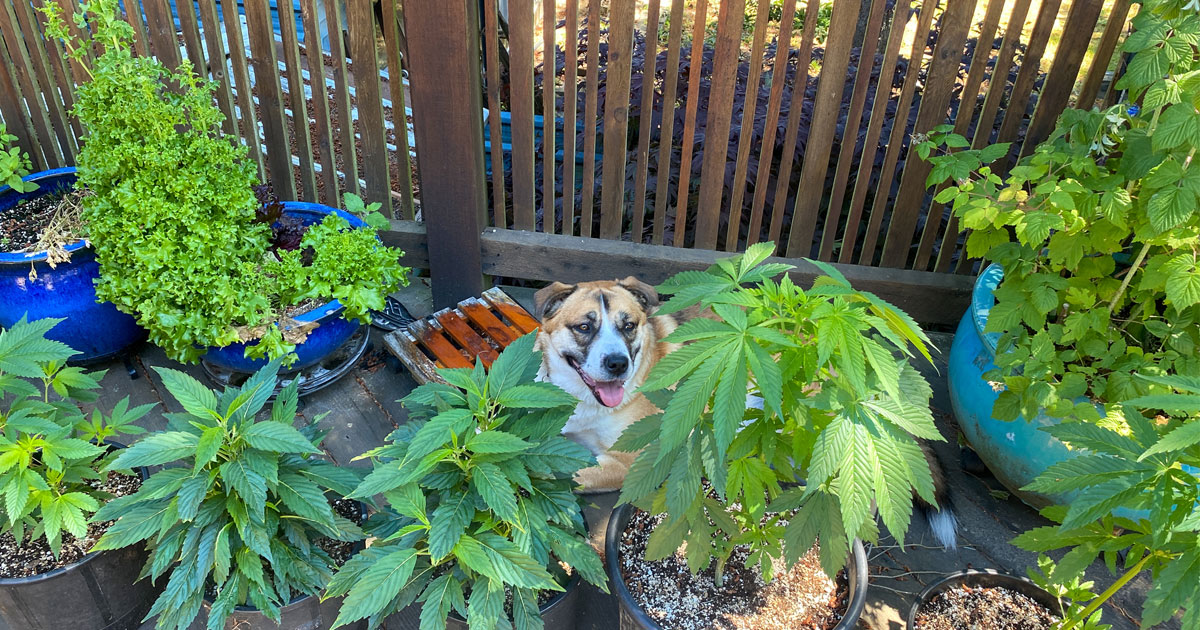
Be sure to protect your seedlings from animals as well. This can be done with fences, organic sprays, and other methods. If you do have an issue with animals, it is important to determine which kind of animal is eating your hemp. This can help you decide which deterrents will be most effective. Growing your plants indoors helps to prevent many wildlife-related issues.
Harvesting
So, how long does it take to grow hemp? While the answer can vary depending on location and variety, hemp matures in about four months. When your hemp is ready, you can harvest it with gardening scissors or a disc mower. Leave approximately four inches between where you cut and the ground. The bottom parts are more difficult to cut, and doing so could keep the plant from continuing to grow. You should dry your harvested hemp as soon as you can, too, or the yield may get moldy.
Drying Your Hemp Plants
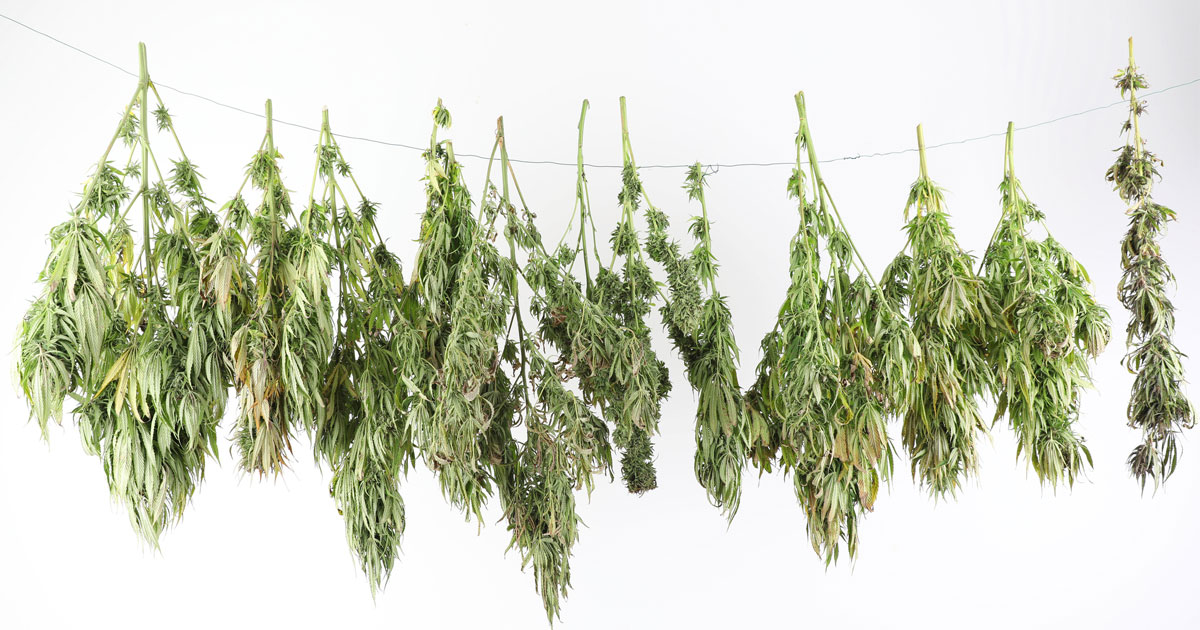
To dry your hemp, you will need a well-ventilated area with no sunlight but good air flow. Hang the hemp in bundles upside down and set up fans to blow on the hemp continuously. With a humidity around 60% and temperatures between 60 and 70 degrees Fahrenheit, you can expect your hemp to fully dry within three days.
Hemp at Home: the Takeaways
Growing hemp can be a fun and educational endeavor if you know what to do. Many people find it rewarding and enjoy making their own meals and products out of their harvest. Its sustainable growth process creates a wonderful opportunity for gardeners and manufacturers alike. 5 Continue learning about the impact of hemp and be sure to check-out Your Guide to Home Uses for Hemp for even more ideas on what you can do with this amazing plant.
- Rupasinghe, H., Davis, A., Kumar, S. K., Murray, B., & Zheljazkov, V. D. (2020). Industrial Hemp (Cannabis sativa subsp. sativa) as an Emerging Source for Value-Added Functional Food Ingredients and Nutraceuticals. Molecules (Basel, Switzerland), 25(18), 4078. https://doi.org/10.3390/molecules25184078
- USDA (n.d). Hemp. United States Department of Agriculture Topics. Retrieved May 25, 2022, from https://www.usda.gov/topics/hemp
- USDA (n.d.). Status of State and Tribal Hemp Production Plans for USDA Approval | Agricultural Marketing Service. Agricultural Marketing Service. Retrieved May 25, 2022, from https://www.ams.usda.gov/rules-regulations/hemp/state-and-tribal-plan-review
- Adesina, I., Bhowmik, A., Sharma, H., & Shahbazi, A. (2020, February 13). A Review on the Current State of Knowledge of Growing Conditions, Agronomic Soil Health Practices and Utilities of Hemp in the United States. MDPI. Retrieved May 25, 2022, from https://doi.org/10.3390/agriculture10040129
- Ahmed, A., Islam, M. Z., Mahmud, M. S., Sarker, M. E., & Islam, M. R. (2022). Hemp as a potential raw material toward a sustainable world: A review. Heliyon, 8(1), e08753. https://doi.org/10.1016/j.heliyon.2022.e08753
Jenny Weatherall is the co-owner and CEO of Eminent SEO, a design and marketing agency founded in 2009. She has worked in the industry since 2005, when she fell in love with digital marketing… and her now husband and partner, Chris. Together they have 6 children and 3 granddaughters.
Jenny has a passion for learning and sharing what she learns. She has researched, written and published hundreds of articles on a wide variety of topics, including: SEO, design, marketing, ethics, business management, sustainability, inclusion, behavioral health, wellness and work-life balance.
